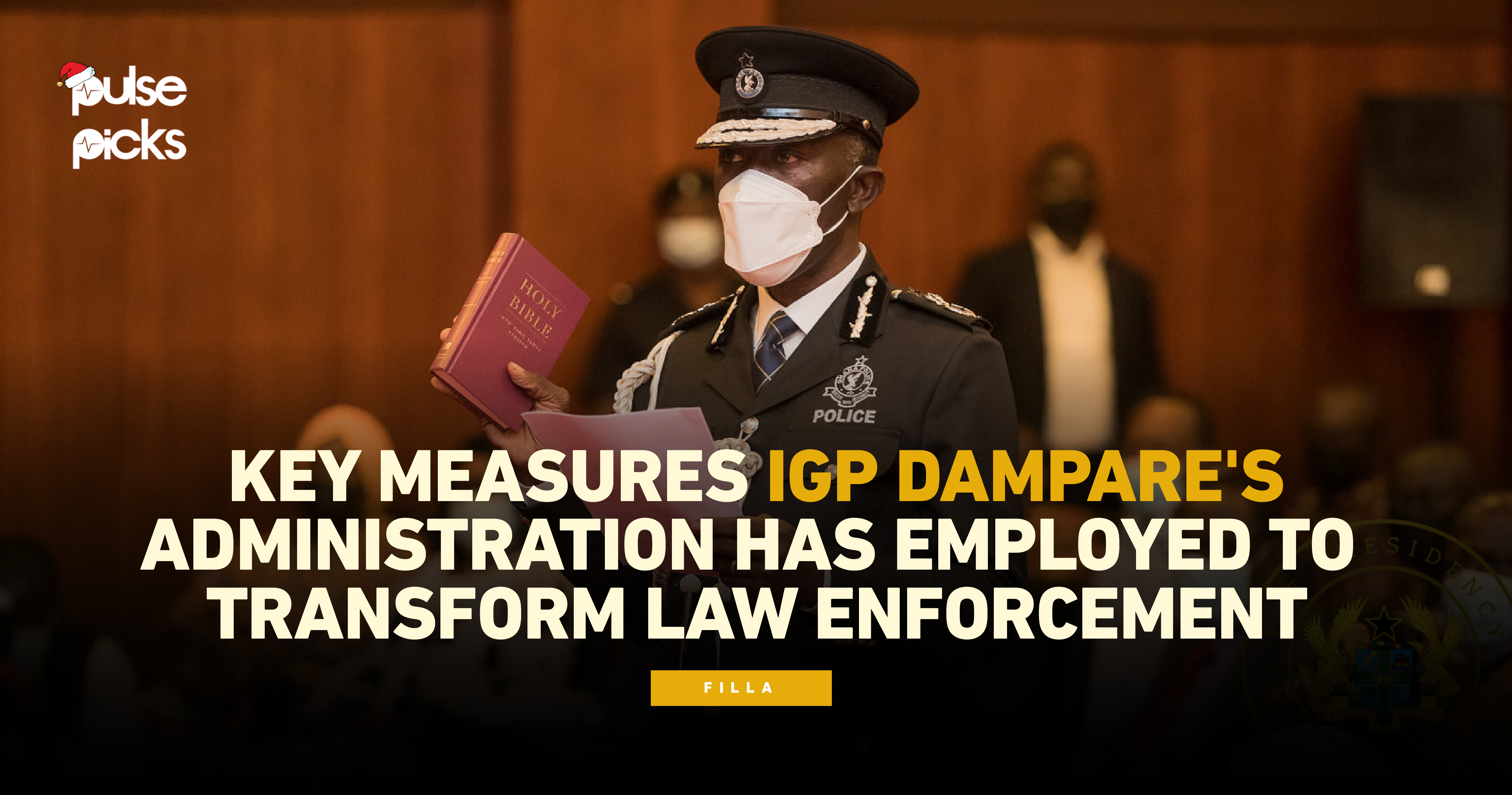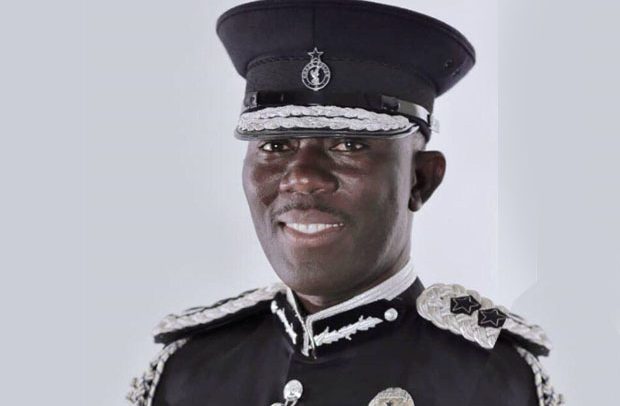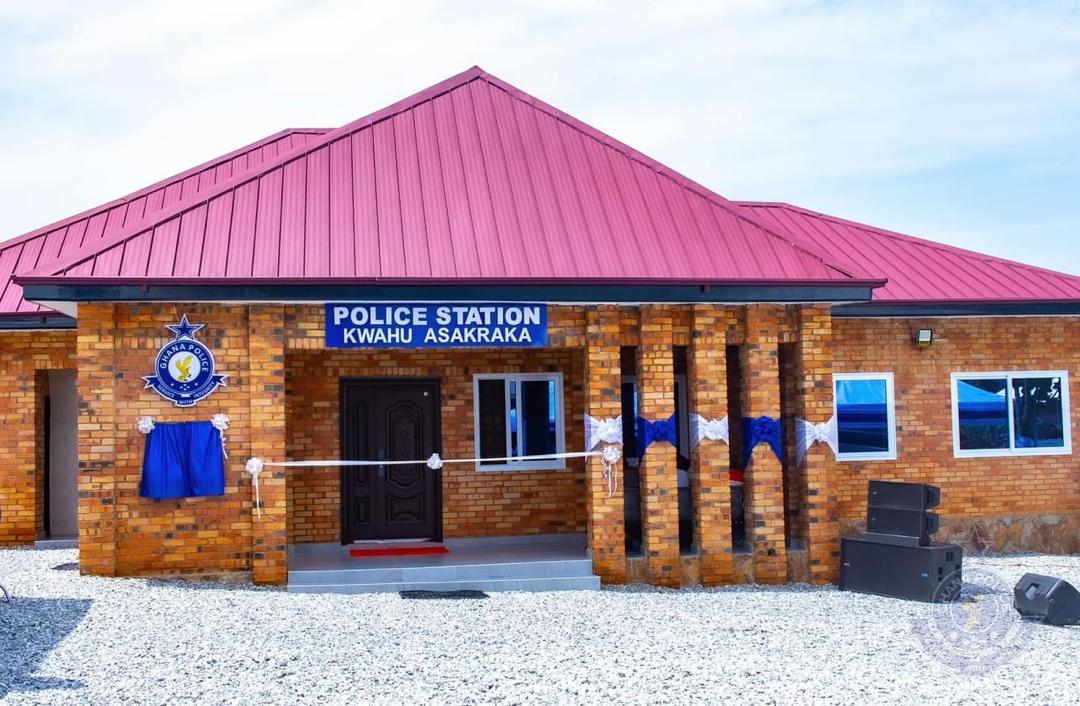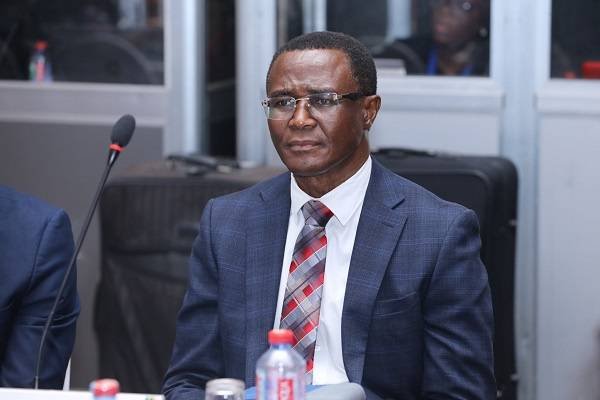
Ghana has witnessed the rise and fall of numerous Inspectors General of Police over the years. However, Dr. George Akuffo Dampare, the current head of the Ghana Police Service, appears to be arguably the one who has most captured the hearts of Ghanaians. Since his appointment in August 2021 by President Nana Addo Dankwa Akufo-Addo, succeeding James Oppong-Boanuh, Dampare has enjoyed widespread support and love.
His appointment was met with commendations, declarations of support, and high expectations that the police service, for a long time, if not the first, was going to be led by a no-nonsense man aiming to transform the law enforcement agency into a commendable standard from its then lacklustre image. Civil society players, security analysts, politicians, and other sections of the general public who had worked with him or known him before his appointment confessed that he was the right man for the job.
Over the past two years, his administration has indeed lived up to expectations, although it has had a few instances of disagreements with the public on certain issues.
One of the first actions he took shortly after assuming his role was to put an end to the public pronouncement of negative and death prophecies by pastors—a practice that had gained ground among some popular Ghanaian churches. This initiative was widely welcomed by the Ghanaian populace, including respected men of God, as it put an end to a widely condemned trend in which death pronouncements were made on public or popular figures, creating fear and panic.
Aside from cracking down on the pronouncement of doom prophecies by religious leaders, here are some other key initiatives introduced by IGP Dampare, which, with the support of his leadership team and officers across the country, have changed policing for the better:
No Respecter of Persons:
The police service under Dampare’s leadership may not have been perfect, but to a large extent, it has shown a commitment to treating all individuals equally before the law, irrespective of their social status or affiliations. This commitment was evident in the arrests of some politicians, including MPs, for various offences, which previously they would get away with. Every citizen, regardless of their social standing, has become alert, ensuring they don’t find themselves in trouble with the police because positions or influence, connections, or wealth may not save them.
Action against Lawless Driving:
This initiative aims to address issues related to reckless and unlawful driving practices. It includes stricter enforcement of traffic laws, increased road safety measures, and public awareness campaigns. Since the onset of this initiative, many people, including parliamentarians, ministers, pastors, and other respectable individuals, have been arrested for traffic offences and made to face the law just like the ordinary Ghanaian.
Police Action Against Rider Indiscipline (Operation PAARI):
This initiative, as the name suggests, is a specific law enforcement operation with the distinct objective of addressing the reckless riding of motorbikes without regard to traffic rules. It has brought some appreciable level of sanity on the roads, especially within the national capital and other cities. It involves the arrest of errant riders, gathering and educating them on the law, and making them ambassadors of road safety. This has worked effectively to the extent that motorcycle riders now stop at traffic intersections to wait for the green light before they move.
Operation Catch Them Young:
This initiative involves proactive measures to prevent and address juvenile delinquency. It encompasses community engagement, educational programs, and interventions aimed at steering young individuals away from criminal activities while strengthening police-civilian friendliness. The IGP himself and his team of top officials often visit schools across the country to interact with them.
Ghana Police TV:
The establishment of a dedicated police television channel is a communication strategy to enhance transparency, share information with the public, educate the public on crime and security, and showcase the work of the police force.
Heavy Social Media Presence:
A strong social media presence is crucial for law enforcement agencies to connect with the public, share updates, and gather information. It also serves as a platform for community engagement and public relations. The Ghana Police Service has used its social media channels to share information with the public, and it has also served as a source of official information for media practitioners.
Police Visibility:
Dampare’s administration has increased the visibility of police officers in communities and the streets of various cities across the country, which has had a deterrent effect on criminal activities. The initiative involves deploying officers to high-visibility areas and actively engaging with the public.
Reduction of Armed Robbery and Other Criminal Activities:
The police service under Dampare’s leadership has reduced armed robbery and other criminal activities through a combination of intelligence-led policing, community partnerships, and strategic operations targeting criminal networks. This has restored a sense of security in the citizenry compared to the state of affairs before the current leadership assumed office.
Abuse of Power by Police Officers:
Misbehaviour by police officers, including physically assaulting civilians, among other things, has become a thing of the past under the leadership of Dampare. Several officers who were captured in footage misbehaving have been interdicted and subjected to internal discipline. This has put officers of the police service on their toes, knowing that any errant conduct could land them in trouble.
Body Cameras by Officers:
Oftentimes, accusations of brutality against civilians have been levelled against police officers, especially during protests. It is ostensibly for this reason and many others that the police administration recently introduced the use of body cameras by its officers. The use of body cameras by police officers enhances accountability, transparency, and the collection of evidence. It can be a valuable tool in maintaining public trust and addressing allegations of misconduct.
Civilian-Friendly Strategies:
The police administration has been implementing strategies that prioritize positive interactions with civilians, community policing, and public education to foster a positive relationship between the police and the community. This has seen the IGP himself contacting some members of the public directly in person or via phone calls to interact with them on relevant matters and to assure them of the police service’s preparedness to ensure their security.
Read Full Story




















Facebook
Twitter
Pinterest
Instagram
Google+
YouTube
LinkedIn
RSS